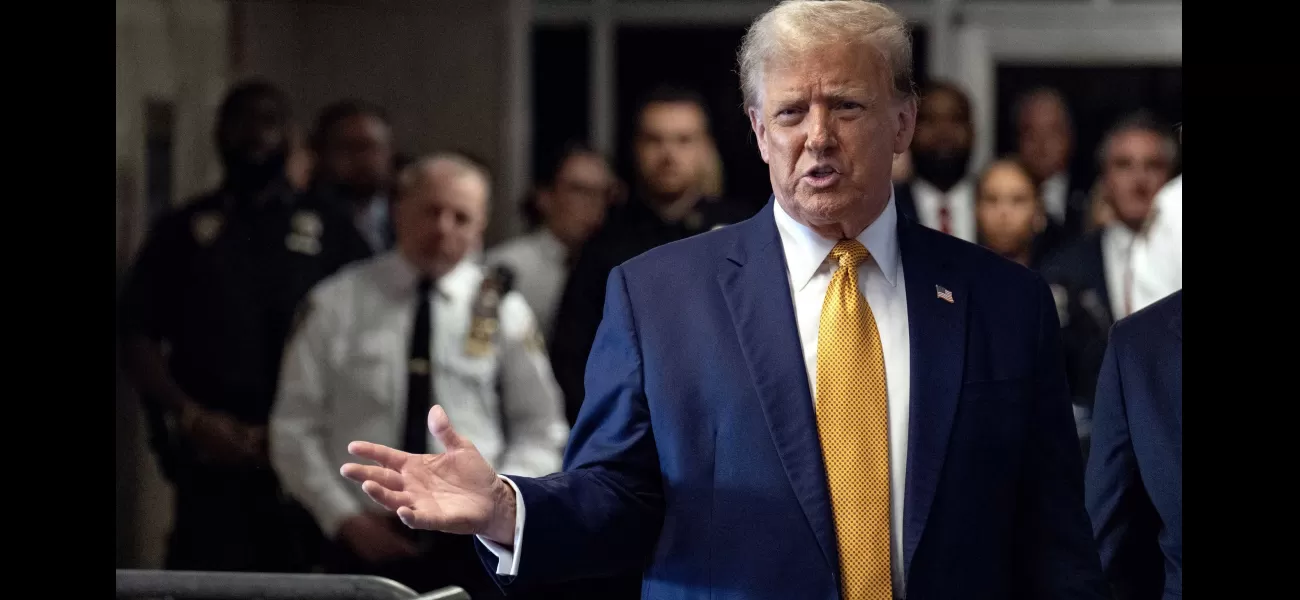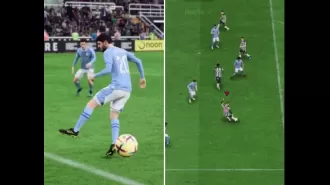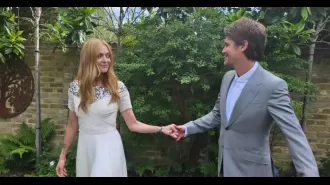Trump's sentencing for hush money case delayed due to immunity decision.
Trump's sentencing for business fraud postponed until September due to Supreme Court decision on presidential immunity, per NY judge.
July 2nd 2024.

According to a recent ruling by a New York judge, former President Donald Trump will not face sentencing for his business fraud conviction until September. This comes after the Supreme Court's decision on presidential immunity was announced on Monday. The postponement means that Trump will likely avoid any consequences for his felony conviction during the summer months, a time when his election campaign has received a boost from President Joe Biden's lackluster debate performance, causing some Democrats to question if they should replace their nominee.
Initially, Trump was set to be sentenced on July 11, but Judge Juan Merchan has now pushed the date to September 18, "if such is still necessary." This delay highlights the significant impact of the Supreme Court's ruling, which states that presidents have absolute immunity for their "core" duties. This decision has cast doubt on special counsel Jack Smith's indictment of Trump on charges of election subversion, and it is now highly unlikely that a trial will take place before the November election. The ruling could also have implications for other charges against Trump, such as those related to classified documents and interference in the Georgia election.
In May, Trump became the first former US president to be convicted of a felony when a Manhattan jury found him guilty of 34 counts of falsifying business records in his hush money criminal trial. On Monday, his legal team filed a letter seeking to challenge the conviction following the Supreme Court's ruling that presidents cannot be prosecuted for their official acts. The Manhattan District Attorney's Office has agreed to delay the sentencing, stating that while they believe Trump's arguments to be unfounded, they will not oppose his request for more time to file a response.
Trump's lawyers argued that the evidence presented during the trial, including testimony from former White House communications director Hope Hicks and Trump's tweets and phone records while in office, should not have been allowed as they pertained to his official duties. They cite the Supreme Court's ruling that Trump is entitled to a "presumptive immunity" from prosecution for all of his official acts. His attorneys argue that the guilty verdicts in this case violate the presidential immunity doctrine and could lead to a self-destructive Executive Branch.
In summary, Trump's sentencing for his business fraud conviction has been delayed until September due to a recent ruling on presidential immunity. This decision has also raised questions about the possibility of a trial for other charges against the former president. Trump's legal team is challenging his conviction, citing the Supreme Court's ruling that presidents have immunity for their official acts, and argue that the evidence presented during the trial should not have been allowed. The delay in sentencing has further highlighted the far-reaching implications of the Supreme Court's ruling and its potential impact on the justice system.
Initially, Trump was set to be sentenced on July 11, but Judge Juan Merchan has now pushed the date to September 18, "if such is still necessary." This delay highlights the significant impact of the Supreme Court's ruling, which states that presidents have absolute immunity for their "core" duties. This decision has cast doubt on special counsel Jack Smith's indictment of Trump on charges of election subversion, and it is now highly unlikely that a trial will take place before the November election. The ruling could also have implications for other charges against Trump, such as those related to classified documents and interference in the Georgia election.
In May, Trump became the first former US president to be convicted of a felony when a Manhattan jury found him guilty of 34 counts of falsifying business records in his hush money criminal trial. On Monday, his legal team filed a letter seeking to challenge the conviction following the Supreme Court's ruling that presidents cannot be prosecuted for their official acts. The Manhattan District Attorney's Office has agreed to delay the sentencing, stating that while they believe Trump's arguments to be unfounded, they will not oppose his request for more time to file a response.
Trump's lawyers argued that the evidence presented during the trial, including testimony from former White House communications director Hope Hicks and Trump's tweets and phone records while in office, should not have been allowed as they pertained to his official duties. They cite the Supreme Court's ruling that Trump is entitled to a "presumptive immunity" from prosecution for all of his official acts. His attorneys argue that the guilty verdicts in this case violate the presidential immunity doctrine and could lead to a self-destructive Executive Branch.
In summary, Trump's sentencing for his business fraud conviction has been delayed until September due to a recent ruling on presidential immunity. This decision has also raised questions about the possibility of a trial for other charges against the former president. Trump's legal team is challenging his conviction, citing the Supreme Court's ruling that presidents have immunity for their official acts, and argue that the evidence presented during the trial should not have been allowed. The delay in sentencing has further highlighted the far-reaching implications of the Supreme Court's ruling and its potential impact on the justice system.
[This article has been trending online recently and has been generated with AI. Your feed is customized.]
[Generative AI is experimental.]
0
0
Submit Comment





